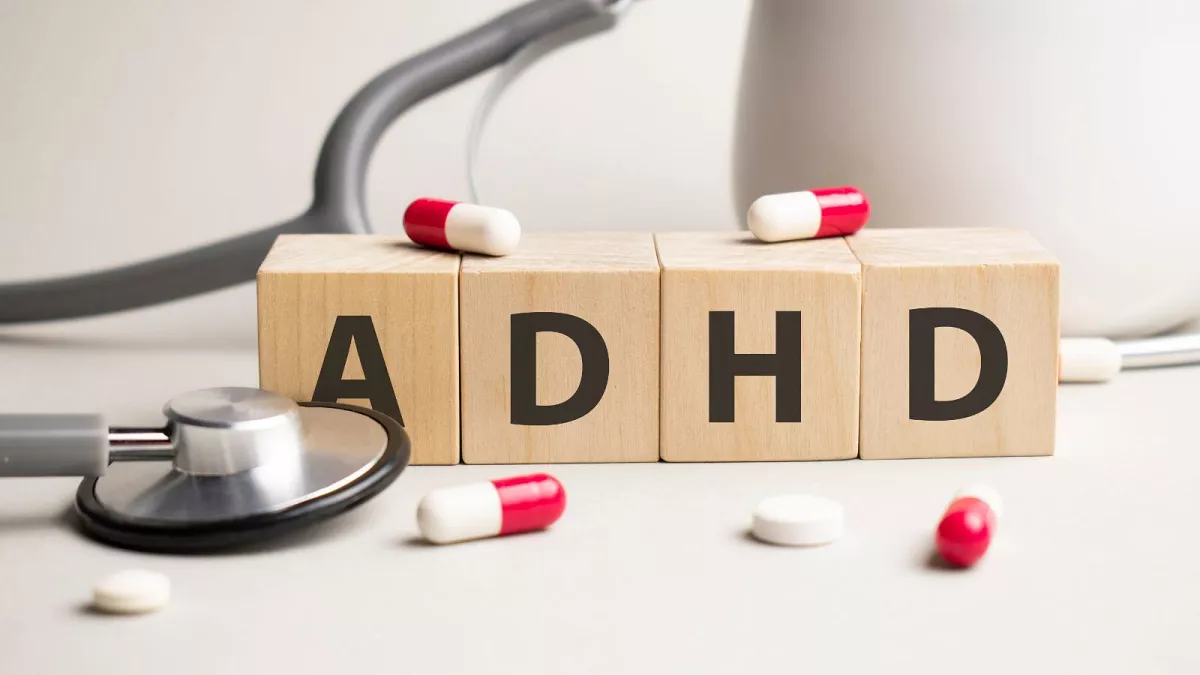ADHD Medication and Emotional Dysregulation Managing Mood Swings

One typical issue that people with Attention Deficit Hyperactivity Disorder (ADHD) face is emotional dysregulation. Emotional dysregulation is a condition marked by extreme mood swings, impatience, and trouble controlling emotions. It can have a serious negative influence on day-to-day functioning, interpersonal relationships, and general well-being. Although the main benefit of ADHD medicine is its ability to effectively treat hyperactivity and inattention symptoms, there is mounting evidence that these conditions can also be managed by the drug when it comes to emotional dysregulation in ADHD patients. This article examines the connection between emotional dysregulation and ADHD Medication, mood swing management techniques, and the value of all-encompassing treatment approaches.
Comprehending ADHD's Emotional Dysregulation
The term "emotional dysregulation" describes problems with controlling and expressing emotions in a situation-appropriate manner. Emotional dysregulation in ADHD sufferers frequently presents as:
Extreme mood swings that happen quickly and are usually brought on by small irritations or disappointments. They can range from euphoria to annoyance or wrath.
Challenges Managing Anger:
Experiencing short fuse, violent outbursts, and having trouble reining in urges when irritated or offended.
Sensitivity and Overwhelm:
Being readily taken over by feelings, events, or sensory information, which makes one more sensitive and reactive.
Impulsivity in Emotional Reactions:
Reacting hastily to feelings without thinking through the repercussions, which can result in poor choices or confrontations with other people.
ADHD Medication's Function in Treating Emotional Dysregulation
While the main reasons that ADHD medication is recommended are to treat the basic symptoms of hyperactivity and inattention, it can also help people with emotional dysregulation. The following processes could be involved in how well the drug controls mood swings and emotional instability:
Enhanced Executive Functioning:
ADHD medicine, especially stimulants like amphetamines and methylphenidate, tackles the neurobiological deficiencies that underlie ADHD, including executive functioning deficits. Medication for ADHD can help patients better control their emotions and reactions by improving cognitive control, attentional focus, and impulse regulation.
Stabilizing Dopamine Levels:
Dopamine dysregulation is linked to challenges with motivation, emotional control, and reward processing, and it is implicated in ADHD. The way that ADHD medications function is by raising dopamine levels in the brain, which may help people with ADHD feel less moody and less erratic emotionally.
Enhanced Stress Resilience:
By lowering reactivity to stressors and strengthening coping strategies, ADHD medications can enhance stress resilience. Medication for ADHD may help people better control emotional arousal and recover from emotional discomfort by modifying the stress response system.
Facilitated Cognitive-Behavioral Strategies:
By enhancing cognitive flexibility, problem-solving abilities, and self-regulation, ADHD medication can improve the efficacy of cognitive-behavioral strategies for controlling emotions. When medication optimizes cognitive functioning, individuals with ADHD may find it simpler to apply coping mechanisms and emotion control strategies.
Techniques for Handling ADHD Mood Swings
Several techniques, in addition to medication, can assist people with ADHD in efficiently managing emotional dysregulation and mood swings:
Psychoeducation:
Teaching people with ADHD the characteristics of emotional dysregulation, how it relates to ADHD, and how to control their mood swings might enable them to actively participate in their emotional health.
The goal of cognitive-behavioral therapy (CBT), an organized therapeutic method, is to recognize and confront maladaptive beliefs and actions linked to emotional dysregulation. People with ADHD can learn more effective coping strategies and emotional regulation techniques by identifying and reframing harmful thought patterns.
Mindfulness and Relaxation Techniques:
People with ADHD can develop better self-awareness, emotional resilience, and stress management skills by engaging in mindfulness activities including progressive muscle relaxation, deep breathing exercises, and meditation.
Social Support Networks:
Having a strong support system of friends, family, or support groups can help people with ADHD feel validated emotionally and get useful help when they need it.
Healthy Lifestyle Practices:
Those with ADHD can benefit from regular exercise, a balanced diet, enough sleep, and abstaining from substance misuse by improving their emotional stability and general well-being.
The Value of All-Inclusive Treatment Strategies
Even though mood swings and emotional dysregulation can be effectively managed with ADHD medication, treatment must be approached holistically. This involves treating the complex nature of emotional dysregulation and ADHD by combining medication with psychotherapy, lifestyle changes, and support networks.
Furthermore, medication by itself might not be adequate to treat every component of emotional dysregulation, especially when mood instability is caused by underlying psychological or environmental problems. Consequently, in order to maximize results and foster long-term emotional well-being in people with ADHD, a comprehensive strategy that takes into account each patient's needs, preferences, and treatment objectives is crucial.
In summary
Medication for ADHD can be very helpful in controlling emotional dysregulation and mood swings in people with ADHD because it improves executive performance, stabilizes dopamine levels, and increases stress tolerance. To address the intricate interaction of causes causing emotional dysregulation, medication should be incorporated into a comprehensive treatment plan that also includes psychotherapy, lifestyle changes, and social support networks.
People with ADHD can improve their overall quality of life, better interpersonal relationships, and build healthier coping mechanisms by combining medication with evidence-based practices for regulating mood swings and emotional regulation. People with ADHD can learn to deal with emotional issues more skillfully and succeed in both their personal and professional life with the correct resources and assistance.






.png)






